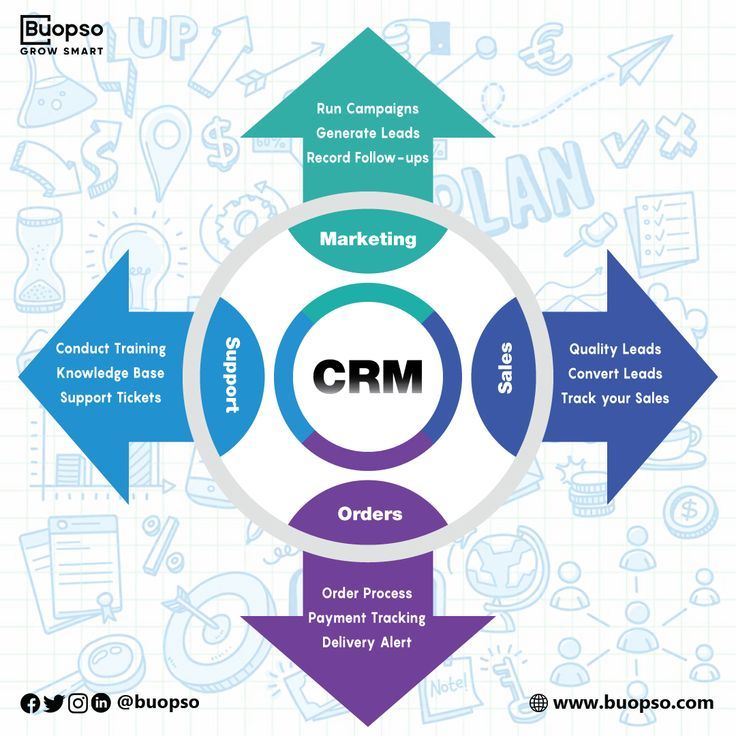
The Role of CRM in Building Brand Loyalty and Advocacy
In an increasingly competitive marketplace, building brand loyalty and advocacy is crucial for long-term success. Customer Relationship Management (CRM) systems play a pivotal role in this process by enabling businesses to understand, engage, and retain customers more effectively. This article explores how CRM systems contribute to building brand loyalty and advocacy, highlighting key strategies and benefits.
Understanding CRM and Its Importance
Customer Relationship Management (CRM) refers to the practices, strategies, and technologies used by companies to manage and analyze customer interactions and data throughout the customer lifecycle. The goal is to improve customer service relationships, assist in customer retention, and drive sales growth.
The Connection Between CRM and Brand Loyalty
Brand loyalty is the emotional commitment a customer has to a brand, which results in consistent repeat purchases. CRM systems enhance brand loyalty through:
- Personalized Customer Experiences: CRM systems gather detailed data about customer preferences, behaviors, and purchase history. This information allows businesses to create highly personalized experiences, making customers feel valued and understood. Personalized experiences can include tailored recommendations, exclusive offers, and targeted communications, all of which strengthen customer loyalty.
- Consistent Engagement: Regular, meaningful engagement is essential for building loyalty. CRM systems enable businesses to automate and manage communications across various channels, ensuring consistent and relevant interactions. This includes personalized emails, social media engagement, and targeted marketing campaigns that keep the brand top-of-mind for customers.
- Effective Customer Service: Timely and effective customer service is a cornerstone of brand loyalty. CRM systems help businesses track customer inquiries and issues, ensuring prompt and appropriate responses. By providing a seamless customer service experience, businesses can enhance customer satisfaction and loyalty.
- Reward and Loyalty Programs: CRM systems can manage loyalty programs, tracking customer points, rewards, and incentives. These programs encourage repeat purchases and deepen the emotional connection to the brand. Personalized rewards and recognition further enhance the effectiveness of these programs.
Building Brand Advocacy Through CRM
Brand advocacy occurs when loyal customers actively promote and recommend a brand to others. CRM systems facilitate brand advocacy by:
- Identifying Advocates: CRM systems can help identify potential brand advocates by analyzing customer data. Customers who frequently purchase, provide positive feedback, and engage with the brand are prime candidates for advocacy programs.
- Engaging Advocates: Once identified, advocates can be engaged through targeted campaigns and exclusive offers. Businesses can leverage CRM data to provide advocates with unique experiences, such as early access to new products or special events. This not only rewards advocates but also encourages them to share their positive experiences with others.
- Encouraging User-Generated Content: CRM systems can help businesses track and encourage user-generated content (UGC) from their most loyal customers. By recognizing and sharing UGC, businesses amplify their advocates’ voices, increasing brand credibility and reach.
- Referral Programs: CRM systems can manage and track referral programs, where advocates are incentivized to refer new customers. These programs capitalize on the trust and influence that advocates have within their networks, driving new customer acquisition through word-of-mouth marketing.
Case Studies: CRM in Action
Starbucks: Starbucks uses its CRM system to power the Starbucks Rewards program, which offers personalized rewards and promotions based on customer preferences and purchase history. This program has significantly contributed to customer retention and brand advocacy, as loyal customers frequently share their positive experiences with others.
Amazon: Amazon’s CRM system collects extensive customer data, enabling personalized recommendations and targeted marketing campaigns. Amazon Prime, the company’s loyalty program, offers benefits such as free shipping and exclusive content, fostering a strong sense of loyalty and advocacy among its members.
Future Trends in CRM for Brand Loyalty and Advocacy
- Artificial Intelligence (AI) and Machine Learning: These technologies will further enhance CRM capabilities, enabling more precise customer insights and personalized interactions. Predictive analytics will help businesses anticipate customer needs and behaviors, strengthening loyalty and advocacy efforts.
- Omnichannel Integration: As customers engage with brands across multiple channels, CRM systems will need to integrate seamlessly with all touchpoints. This ensures a unified customer experience, enhancing loyalty and advocacy.
- Enhanced Data Privacy and Security: With increasing concerns over data privacy, businesses must ensure their CRM systems comply with regulations and protect customer data. Trust is a fundamental component of loyalty and advocacy, making data security a top priority.
Conclusion
The role of CRM in building brand loyalty and advocacy is indispensable. By leveraging CRM systems, businesses can create personalized experiences, ensure consistent engagement, provide effective customer service, and manage loyalty and advocacy programs. As technology advances, the potential for CRM systems to foster deeper customer connections and drive brand loyalty and advocacy will continue to grow. Investing in robust CRM solutions is essential for businesses aiming to cultivate loyal, satisfied customers who become passionate advocates for their brand.